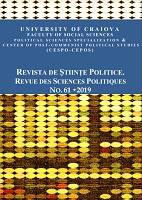The Fall of Communism and Its Impact on English Teaching and Learning
The Fall of Communism and Its Impact on English Teaching and Learning
Author(s): Eleonora Olivia Bălănescu Subject(s): Foreign languages learning, History of Education, Post-War period (1950 - 1989), Transformation Period (1990 - 2010), History of Communism
Published by: Editura Universitaria Craiova
Keywords: communication; education; motivation; needs; skills;
Summary/Abstract: The end of the communist era opened all sorts of borders, freeing people from Eastern Europe not only to travel without restrictions, but also to have access to information. Mass media and satellite communication have made space and geographical demarcations entirely arbitrary. In a world of increased interaction among individuals, countries and cultures, English has acquired the role of a lingua franca, hence people’s need for proficiency in English. The aim of this article is to analyse how students’ motivation and learning needs have changed since 1989, and to scrutinise how the Romanian education system has accommodated all these changes. As a method, we will compare English teaching before and after 1989, in terms of study programmes, methodological approaches and schoolbooks. The result of all these changes is that more and more students have access to English studies, and their level of proficiency is increasing.
Journal: Revista de Științe Politice. Revue des Sciences Politiques
- Issue Year: 2019
- Issue No: 61
- Page Range: 57-67
- Page Count: 11
- Language: English

